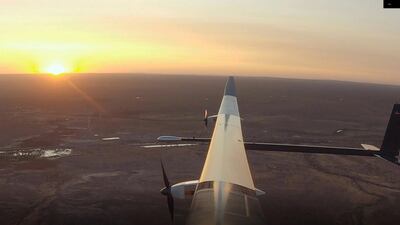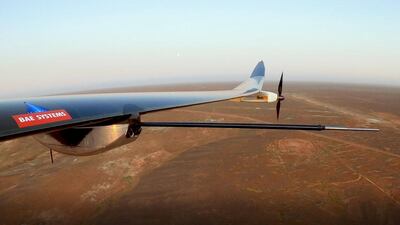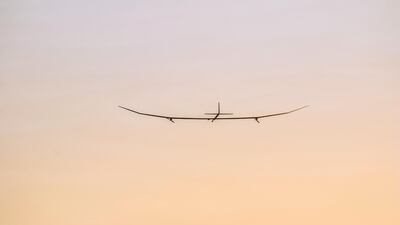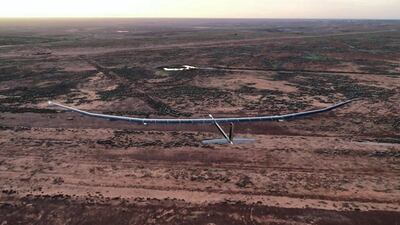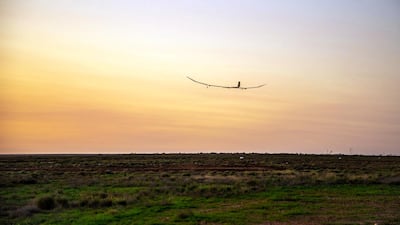A pilotless solar-electric aircraft completed its maiden flight, marking a milestone in bringing a new type of unmanned aerial vehicle to market as a potential alternative to satellite technology.
The manufacturer, BAE Systems, is marketing PHASA-35 as a more "affordable" alternative to satellites that can be used by governments and the private sector for forest fire detection, providing a 5G connection in remote areas, border security and maritime surveillance.
PHASA-35 enters the market as major aviation and aerospace firms like Europe's aircraft manufacturing giant Airbus, Germany's Lilium and the US's NASA are investing millions of dollars into developing electric-powered aircraft, using methods like typical power cables, batteries, solar cells and fuel cells. Meanwhile, major progress in autonomous systems in aircraft and ever-increasing reliance on satellites and drones in both the public and private sector are further fuelling this new form of space race.
"To go from design to flight in less than two years shows that we can rise to the challenge the UK government has set industry to deliver a Future Combat Air System within the next decade,” Ian Muldowney, engineering director at BAE Systems, said.
The PHASA-35, with a wingspan of 35 metres, is designed to fly in the stratosphere, above weather patterns and conventional air traffic, but below the exosphere, the layer of atmosphere where satellites fly. The aircraft is powered by the sun during the day and by batteries overnight. The long-life battery and solar technology could allow the aircraft to maintain flight for up to a year in the stratosphere, according to BAE Systems.
PHASA-35 is designed to carry up to 15 kilos of equipment for monitoring, surveillance, communications and security applications, the company said.
The team working on PHASA-35 were part of a collaboration between the UK's BAE Systems and Prismatic, a UAV firm that BAE acquired for an undisclosed sum last year. The test flights are being sponsored by the UK’s Defence Science and Technology Laboratory and Australian Defence Science and Technology Group (DSTG). The successful flight trials, meanwhile, took place at the Royal Australian Air Force (RAAF) Woomera Test Range in South Australia.
Further flight trials are scheduled for later this year, with the possibility that the aircraft could enter initial operations with customers within 12 months of their completion, according to BAE Systems.
